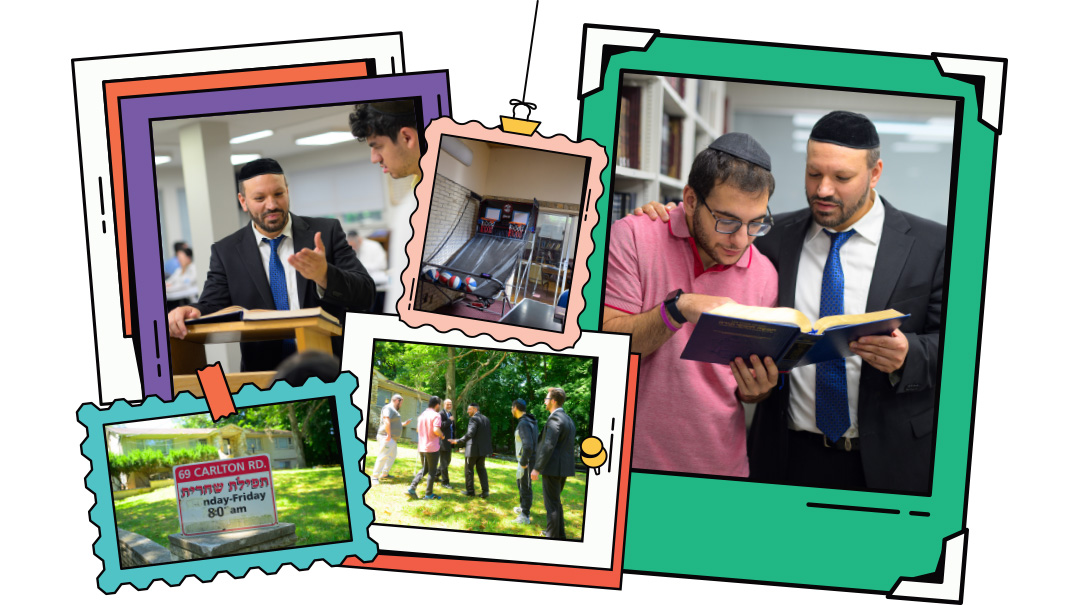Second Act

Rabbi Yosef Simon created a safe harbor for Torah newcomers

Photos: Naftoli Goldgrab
He’s not a backpacker randomly sauntering into a Torah class in Jerusalem. This fellow has already committed to a life of mitzvah observance, but he doesn’t have the family support, educational background, or cultural frame of reference to become a real part of the new world he’s chosen.
That’s why Rabbi Yosef Simon opened Toras Dovid. Because someone had to step into the breach to help those who’d committed to Torah Judaism yet found themselves adrift
Classically trained singer and musician Alex Gershoni grew up in Manhattan feeling that some of his extended family members — the ones who were frum — possessed something special that he lacked. And so in his late twenties, he decided on a whim to go to a shul and check out Jewish observance. He was impressed by the people he met and interested in the way they lived their lives, and before long, he became a shomer Shabbos Shlomo Aryeh.
Upon his engagement two-and-a-half years ago, Shlomo Aryeh told his then-fiancée that he really wanted to invest in some full-time learning. But he couldn’t just enroll in a kollel — he had precious little Hebrew background and no learning skills. He knew about yeshivos for beginners in Eretz Yisrael, but Shlomo Aryeh’s future wife wasn’t keen on moving so far from her Brooklyn-based family.
Yet Shlomo Aryeh, for his part, realized that “You can only go so far trying to learn Gemara with an English translation.”
What recourse is there for second-stage baalei teshuvah like Shlomo Aryeh, people who have become frum and are deeply motivated but don’t have the skills to enroll in a mainstream yeshivah?
Rabbi Yosef Simon had the very same question, and in his own experience helping young men going through the teshuvah process, he decided to create an answer. Rabbi Simon is a talmid of Ohr Somayach Monsey’s Rav Yisroel Simcha Schorr, from whom he received semichah, and when he himself began teaching chassanim, he saw up close the variant struggles of baalei teshuvah trying to find their way in a new world without the usual family support, educational background, or cultural frame of reference. Someone, he realized, needed to step into the breach to help those who had committed to Torah Judaism yet found themselves adrift, someone who could encourage their progress and help them navigate milestones like shidduchim, marriage, children, and parnassah.
When Rabbi Simon conceived the idea to open a yeshivah-within-the-yeshivah to service men who were already committed to Torah observance but needed further guidance and development of learning skills, young men who have typically left behind their old friends and family and are in need of a supportive community to encourage their progress and help them navigate milestones like shidduchim, marriage, children, and parnassah, Rav Schorr was all in.
Oops! We could not locate your form.







